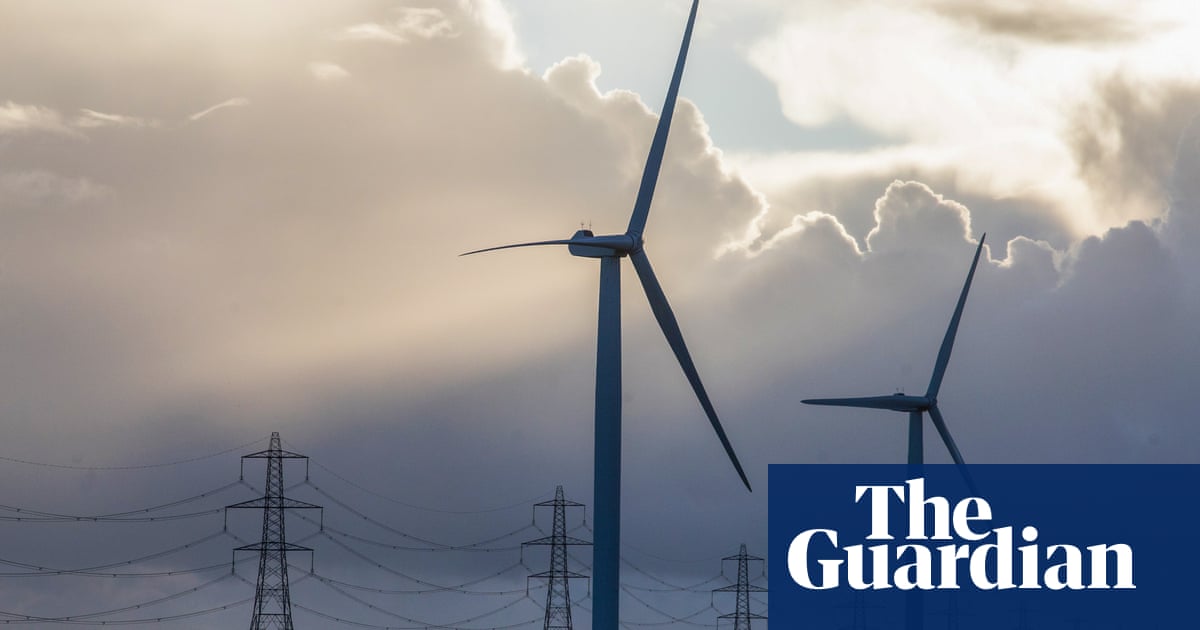Winter blackouts risk in Great Britain ‘lowest in four years’ despite end of coal

The risk of winter blackouts in Great Britain has tumbled to its lowest in four years even after the shutdown of the UK’s last coal plant, thanks to investments in low-carbon electricity sources.
The National Energy System Operator (Neso) expects Britain’s winter power supplies to outstrip demand by almost 9% this year in its base case scenario, the greatest margin since the winter of 2019 to 2020.
The company responsible for keeping the lights on, which was bought by the government from National Grid at the start of this month, said the power supply margin for this winter was higher because Great Britain has more battery storage projects, small-scale renewables and imported electricity.
The UK is expected to rely on record levels of imported electricity this winter, the first since the world’s longest high-voltage power cable began importing enough clean electricity from Denmark to power 2.5m British homes.
The Viking power link, which can also export British electricity to Denmark, is a vital part of the UK’s strategy to wean itself off fossil fuel power by creating a flexible, low-carbon electricity grid.
These steps towards Britain’s legally binding 2050 climate targets are expected to more than offset the impact of retiring power plants, including the closure of the UK’s last coal-fired power plant at Ratcliffe-on-Soar, which was called on to supply 2.3% of the UK’s electricity during a cold snap in January.
During the Europe-wide gas crisis caused by Russia’s invasion of Ukraine in early 2022, Britain kept its old coal plants on standby to keep the lights on if it was short of gas to run its power plants.
However, for the winter ahead concerns have been eased by the abundant gas stores across the EU, which are 95% full. In addition, Britain expects to import gas from Norway’s pipelines and via tanker from the US or Qatar through the winter months to meet the demand of power plants, factories and homes.
The conflict is not considered a threat to the UK’s gas supplies, according to Neso.
Craig Dyke, a director at the publicly owned company, said: “While our margin assessment has improved from previous winters, we are continuing to monitor risks and uncertainties and, if necessary, will take steps to build resilience.”
after newsletter promotion
Neso said it was working with the government, the energy regulator and National Gas, which runs the gas system in Great Britain, to assess any emerging risks to the stability of supplies.
The system operator expects to use its demand flexibility service that will result in businesses and consumers paying to reduce their energy usage at peak times. About 2.6m households and businesses received payments to help reduce the pressure on the National Grid last winter.
“We and the rest of the energy industry will as always continue to prepare for a range of potential eventualities, so that we are fully prepared for this coming winter,” Dyke said.
Related
Why investing in women is a vital next step for…
Get Nadine White's Race Report newsletter for a fresh perspective on the week's newsGet our free newsletter from The Independent's Race CorrespondentGet our fre
Business secretary signals major shift on electric car policy to…
In a determined effort to retain Nissan’s manufacturing presence in Britain, Business Secretary Jonathan Reynolds has vowed to implement “substantial c
Joint Statement: Business Secretary and Fujitsu Services Ltd
Business and Trade Secretary Jonathan Reynolds today (Friday 7 March) met chiefs for Fujitsu in Tokyo to begin talks over the cost of redress for victims of th
UK foreign secretary backs multilateral defence funding for Europe
UK foreign secretary David Lammy has said that a new multilateral fund will be needed to secure Europe’s defence as he confirmed that Britain is “open to”













